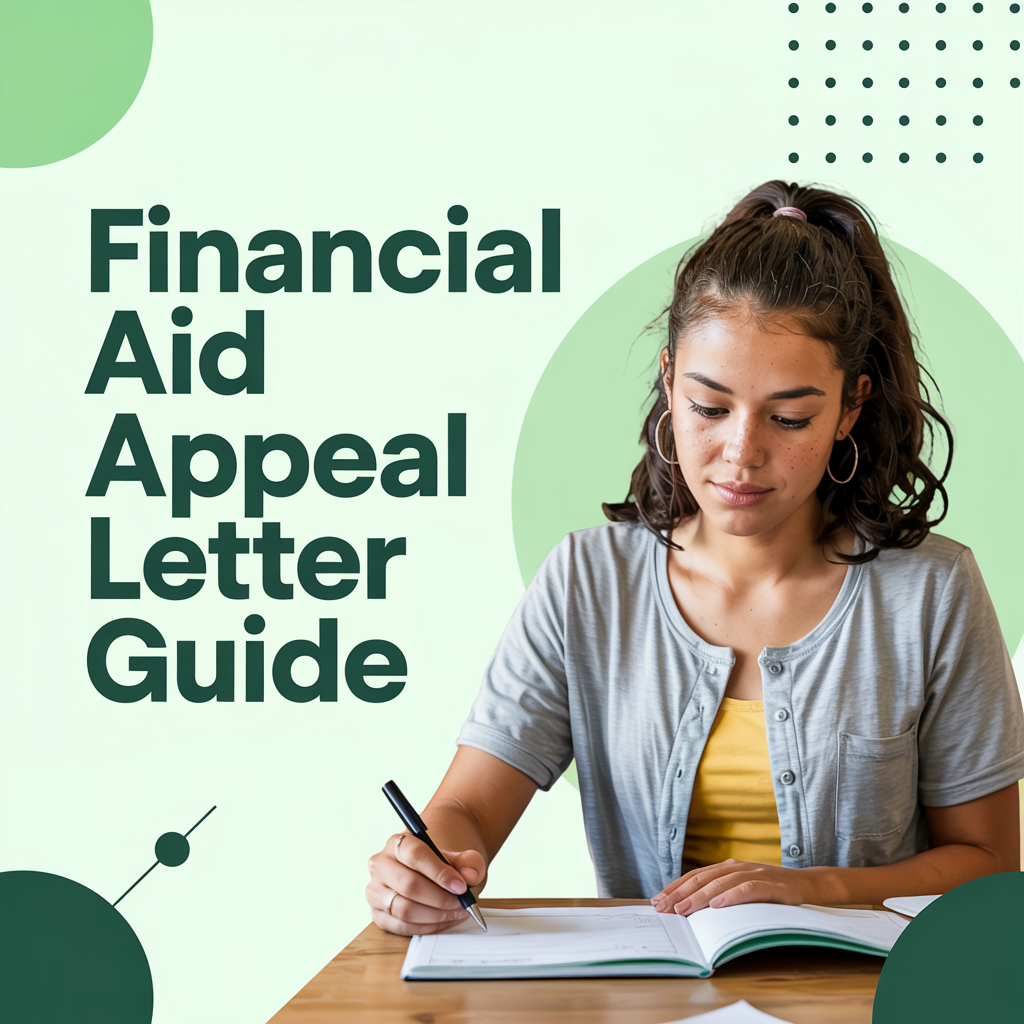Appealing Your Financial Aid Award: Step-by-Step Guide & Sample Letter

You received your financial aid award letter, but after reviewing it, you realize there’s a gap between the aid offered and what your family can actually afford. Or maybe your family’s financial situation has changed significantly since you filed the FAFSA or CSS Profile. In these cases, you might be able to appeal for more financial aid. Writing a clear and compelling financial aid appeal letter is the key to this process. This guide outlines the steps and provides tips.
Received Your Aid Offer, But Need More?
First, make sure you understand the initial offer. If, after careful review, the aid isn’t sufficient due to affordability issues or changed circumstances, an appeal might be appropriate. This process is sometimes called requesting professional judgment financial aid review or detailing special circumstances FAFSA didn’t capture.
💡 Pro tip: Keep track of awards, deadlines, and achievements all in one place with Cirkled In — your all-in-one student portfolio.
Valid Reasons for a Financial Aid Appeal
Colleges are most likely to reconsider your aid package if your family’s financial situation has changed significantly since you filed the aid applications. Valid reasons often include:
- Job Loss or Significant Income Reduction: Parent or student lost a job or experienced a major drop in income.
- High Medical or Dental Expenses: Unusually high out-of-pocket medical costs not covered by insurance.
- Death of a Parent or Spouse: Loss of a primary earner.
- Divorce or Separation: Changes in household structure and income.
- Natural Disaster: Significant financial impact from events like floods or fires.
- Other Extenuating Circumstances: Situations like supporting an elderly relative, disability costs, or one-time income events that inflated income on the FAFSA/CSS Profile but aren’t reflective of ongoing ability to pay.
Simply wanting more money without a documented reason is unlikely to succeed. You generally need proof of special circumstances FAFSA or CSS Profile didn’t fully account for. Some students also try to appeal college aid decision based on better offers from peer institutions, which is more related to merit aid negotiation, but can sometimes be framed carefully here if need is also a factor.
Understanding “Professional Judgment”
Financial aid administrators have the authority to use “professional judgment” (PJ) to adjust the data used in calculating your Student Aid Index (SAI) or institutional need if you have documented special circumstances. Your appeal letter is essentially a request for them to exercise this judgment.
Step-by-Step Guide to Appealing Your Aid
- Contact the Financial Aid Office First: Call or email the office before sending a formal letter. Explain your situation briefly and ask about their specific appeal process and what documentation they require. Each school has its own procedures.
- Gather Documentation: Collect proof supporting your reason for appeal (e.g., termination letters, unemployment statements, medical bills, tax documents showing income change, death certificate, letters from employers).
- Write Your Appeal Letter: Draft a clear, concise, and professional letter (see tips below).
- Submit the Appeal and Documentation: Follow the college’s instructions for submission (portal upload, email, mail). Send it promptly.
- Follow Up (Politely): Wait a reasonable time (check their stated processing time), then politely follow up if you haven’t heard back.
Writing an Effective Financial Aid Appeal Letter (Tips & Structure)
Your financial aid appeal letter should be:
- Polite and Respectful: Thank them for the initial offer. Maintain a professional tone.
- Clear and Concise: Get straight to the point. Explain the situation simply.
- Specific: Clearly state why you are appealing and what has changed.
- Quantify (If Possible): Mention specific dollar amounts related to income loss or expenses.
- State What You Hope For: Politely request a reconsideration of your aid eligibility. Some suggest asking for a specific additional amount if you can calculate it, others advise against it – follow the college’s guidance if they offer any.
- Proofread: Ensure it’s free of errors.
📄 Not sure how to showcase your achievements beyond the numbers? Cirkled In helps you highlight everything that makes you unique in the college process.
Basic Structure:
- Intro: State your name, student ID, and that you are writing to appeal your financial aid award due to changed circumstances. Express gratitude for admission and the initial offer.
- Body Paragraph(s): Clearly explain the specific circumstances that have changed since filing your FAFSA/CSS Profile. Refer to the documentation you are providing. Explain the financial impact this change has had on your family’s ability to pay.
- Conclusion: Reiterate your strong desire to attend the college. Politely request a review of your situation and a reconsideration of your financial aid package. Thank them for their time and consideration.
What Documentation Will You Need?
Be prepared to provide copies (not originals) of documents that prove your situation:
- Letters from employers regarding job loss.
- Unemployment benefit statements.
- Recent pay stubs showing reduced income.
- Medical bills or statements of expenses paid.
- Tax returns or W-2s reflecting income changes.
- Legal documents related to divorce/separation.
- Other relevant documents supporting your specific circumstance.
The financial aid office will tell you exactly what they need.
What Happens Next? Managing Expectations
- Processing Time: Appeals can take several weeks to review, especially during busy periods.
- Possible Outcomes: They might increase grant aid, suggest additional loan options, or determine no change is possible based on their policies and funds.
- No Guarantees: An appeal does not guarantee more aid. Decisions depend on your circumstances, documentation, college policies, and funding availability.
Final Thought: Advocate for Yourself Clearly and Respectfully
If your financial situation has changed, don’t hesitate to ask for more financial aid through a formal appeal. By understanding the process, gathering strong documentation, and writing a clear and respectful financial aid appeal letter, you provide the financial aid office with the information they need to exercise professional judgment. It’s an important way to advocate for yourself and potentially make your preferred college more affordable.
Need more tips on college applications, scholarships, or just how to survive this whole process? Cirkled In has your back—check out Cirkled In resources to help you through every step of your college journey!
Check out Cirkled In and start owning your future today!



0 Comments